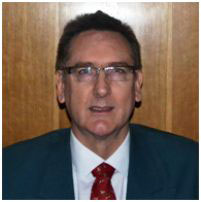 Dr Henk Bekedam, WHO Representative for EgyptDr Henk Bekedam started his work as WHO Representative for Egypt in May 2013. He is a Dutch national and a medical doctor by training. He acquired his MSc in Economics from the London School of Economics in 1996.
Dr Henk Bekedam, WHO Representative for EgyptDr Henk Bekedam started his work as WHO Representative for Egypt in May 2013. He is a Dutch national and a medical doctor by training. He acquired his MSc in Economics from the London School of Economics in 1996.
Prior to his current position, Dr Bekedam was for 6 years the Director of Health Sector Development in the Western Pacific region. He led a team that provided support to 37 countries and areas in a wide range of health system issues, including universal health coverage, health financing, human resources, information systems, pharmaceuticals and service delivery. As part of his responsibilities he also addressed cross-cutting issues in human rights and antimicrobial resistance. In addition, he facilitated the establishment of the Asia Pacific Observatory on Health Systems and Policies in cooperation with other development partners.
Dr Bekedam was the WHO Representative in China from 2002 to 2007. He and the WHO team were instrumental in supporting China in successfully containing the SARS virus in 2003. Other priority areas during his tenure included avian influenza, food safety, environmental health, AIDS, tuberculosis, tobacco control and the increasing incidence of chronic diseases in the world’s largest population.
Dr Bekedam also advised China on health sector reform, overcoming challenges of inaccessibility, poor quality of services, and rising costs. In November 2008, he was selected as one of the 15 most influential overseas experts over the past 30 years for his contribution to China's development.
Prior to becoming WHO Representative for China, Dr Bekedam worked with WHO in Cambodia for 6 years where he was the team leader of a health sector reform project.
During 1988 to 1995 Henk Bekedam was seconded to governments in Africa. Initially in Zambia at a district hospital and from 1991 to 1995 he worked in Malawi, heading the regional health office in Malawi, covering half of Malawi’s population and one million Mozambican refugees.








